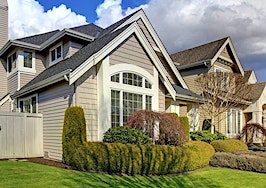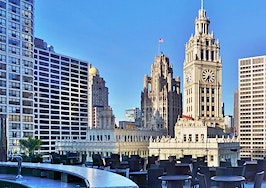Just as certain markets bounced back quicker than others following the recession, some markets have become more friendly to single-family investors as a result.
HomeUnion, a real estate investment management firm, recently released a report outlining the Chicago market in particular as one ideally suited for investors looking for rental property.
HomeUnion expects the renter pool to grow in the coming months, and home prices have remained fairly low despite a slight increase.
The rent-to-price ratio is currently at a healthy 470 basis points, down from 820 basis points at the end of 2013.
More than 7,000 rental units are under construction in metro Chicago to help ease demand, and development of multifamily units is outpacing single-family homes. The report found that in the second quarter of 2015 there were an annualized 4,400 permits for single-family properties and 5,400 for multifamily.
Despite this, inventory is still low, causing the vacancy rate to remain tight. By the end of the year, it’s expected that vacancy will hit around 4.3 percent and that the monthly rental rate will rise 2 percent to $1,650.
The good news for both Chicagoans and single-family investors is that payrolls are nearing prerecession highs and employment recovery is growing year over year. A March report by Zumper found that Chicago was the No. 9 most expensive rental market in the country, and these recent trends show that prices will likely continue to uptick.
The Zumper study found that some of Chicago’s most notable upward trends in rental prices include Auburn Gresham, North Lawndale and Lake View — with increases of 4.6 percent, 4.3 percent and 3.7 percent, respectively — in the month of February.

Some of the most expensive neighborhoods were noted as the Near North Side, The Loop, the Near West Side, West Town and Lincoln Park. The most significant increase was in West Town — 3.4 percent, with a median one-bedroom price of $1,840.
One major consideration for rental property investors is the suburban region surrounding the Chicago metro area. Multifamily construction is concentrated throughout the hub of the city; however, more people are renting in the large suburbs, especially those near major employment centers like Oak Brook and Naperville.

Investors seeking more of a long-term investment might find the suburbs to be an even better bet than the city of Chicago, given an anticipated stronger appreciation.








